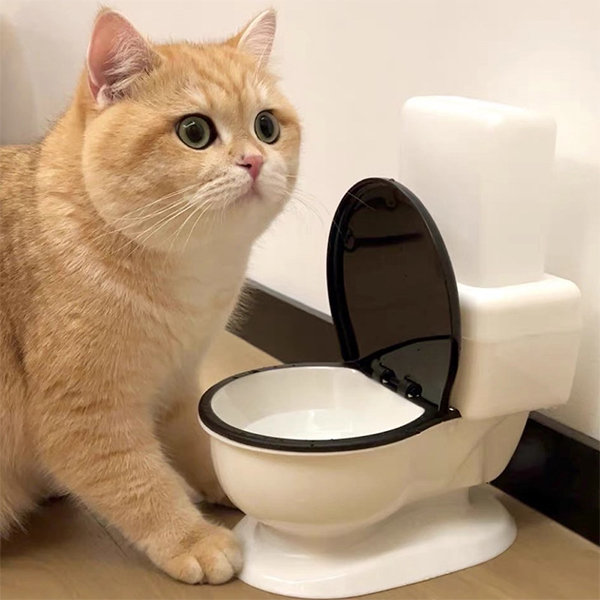Avoid Plumbing Problems: Don't Flush Cat Poop Down Your Toilet - Professional Guidance
Avoid Plumbing Problems: Don't Flush Cat Poop Down Your Toilet - Professional Guidance
Blog Article
Nearly everybody maintains his or her own opinion when it comes to Don’t flush cat feces down the toilet.

Intro
As pet cat proprietors, it's vital to be mindful of how we deal with our feline buddies' waste. While it may appear convenient to purge pet cat poop down the bathroom, this technique can have damaging repercussions for both the environment and human health.
Ecological Impact
Purging feline poop introduces hazardous pathogens and bloodsuckers into the water supply, posturing a considerable risk to marine environments. These contaminants can adversely impact aquatic life and compromise water top quality.
Health Risks
Along with environmental worries, purging feline waste can additionally position health dangers to people. Feline feces might consist of Toxoplasma gondii, a parasite that can create toxoplasmosis-- a possibly extreme disease, particularly for pregnant women and people with damaged body immune systems.
Alternatives to Flushing
Thankfully, there are much safer and a lot more liable means to throw away pet cat poop. Take into consideration the following alternatives:
1. Scoop and Dispose in Trash
The most common method of getting rid of feline poop is to scoop it into a naturally degradable bag and throw it in the trash. Be sure to make use of a committed clutter inside story and dispose of the waste promptly.
2. Use Biodegradable Litter
Select eco-friendly feline litter made from materials such as corn or wheat. These litters are environmentally friendly and can be safely taken care of in the trash.
3. Bury in the Yard
If you have a yard, take into consideration hiding cat waste in a designated location away from vegetable yards and water resources. Make certain to dig deep adequate to avoid contamination of groundwater.
4. Set Up a Pet Waste Disposal System
Invest in an animal garbage disposal system especially designed for pet cat waste. These systems make use of enzymes to break down the waste, minimizing odor and ecological impact.
Verdict
Accountable pet possession extends past providing food and sanctuary-- it additionally includes correct waste management. By avoiding flushing feline poop down the commode and opting for alternative disposal techniques, we can decrease our environmental footprint and secure human wellness.
Why You Should Never Flush Cat Poop Down the Toilet
A rose by any other name might smell as sweet, but not all poop is created equal. Toilets, and our sewage systems, are designed for human excrement, not animal waste. It might seem like it couldn’t hurt to toss cat feces into the loo, but it’s not a good idea to flush cat poop in the toilet.
First and foremost, assuming your cat uses a litter box, any waste is going to have litter on it. And even the smallest amount of litter can wreak havoc on plumbing.
Over time, small amounts build up, filling up your septic system. Most litter sold today is clumping; it is made from a type of clay that hardens when it gets wet. Ever tried to scrape old clumps from the bottom of a litter box? You know just how cement-hard it can get!
Now imagine just a small clump of that stuck in your pipes. A simple de-clogger like Drano isn’t going to cut it. And that means it’s going to cost you big time to fix it.
Parasitic Contamination
Believe it or not, your healthy kitty may be harboring a nasty parasite. Only cats excrete Toxoplasma in their feces. Yet it rarely causes serious health issues in the cats that are infected. Most people will be fine too if infected. Only pregnant women and people with compromised immune systems are at risk. (If you’ve ever heard how women who are expecting are excused from litter cleaning duty, Toxoplasma is why.)
But other animals may have a problem if infected with the parasite. And human water treatment systems aren’t designed to handle it. As a result, the systems don’t remove the parasite before discharging wastewater into local waterways. Fish, shellfish, and other marine life — otters in particular — are susceptible to toxoplasma. If exposed, most will end up with brain damage and many will die.
Depending on the species of fish, they may end up on someone’s fish hook and, ultimately on someone’s dinner plate. If that someone has a chronic illness, they’re at risk.
Skip the Toilet Training
We know there are folks out there who like to toilet train their cats. And we give them props, it takes a lot of work. But thanks to the toxoplasma, it’s not a good idea.

Hopefully you enjoyed reading our topic on Don’t flush cat feces down the toilet. Thank you for spending some time to read through our short article. Please set aside a second to share this blog entry if you enjoyed it. Thank you so much for going through it.
Visit Page Report this page